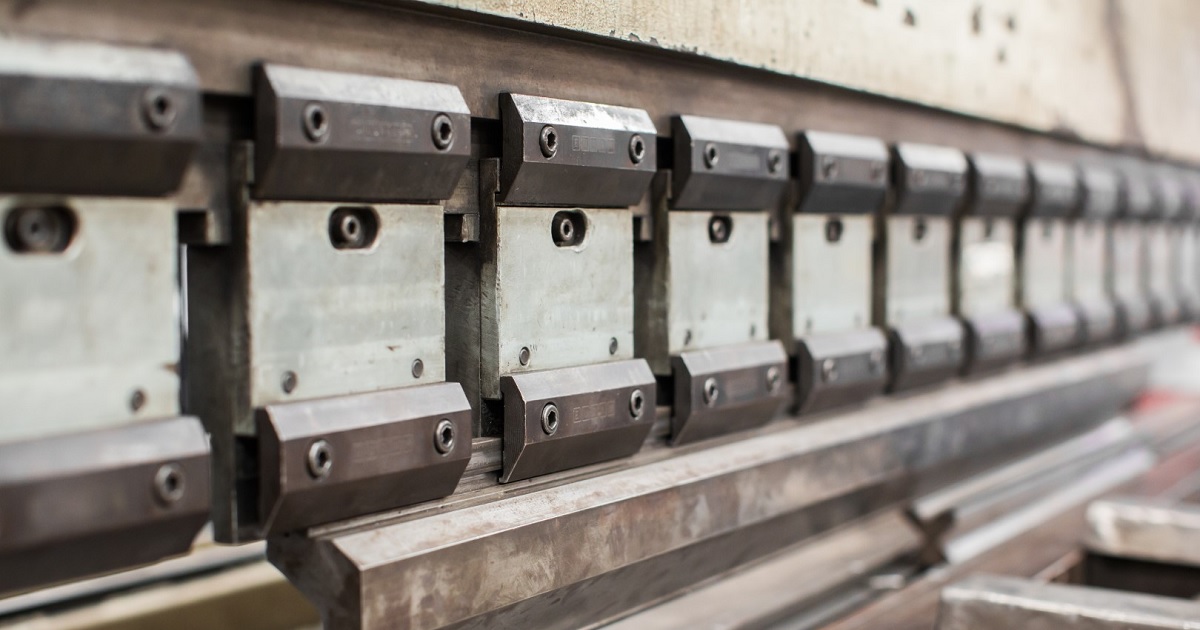
Additive Manufacturing
Teledyne Relays, Inc. | January 29, 2024
Teledyne Relays, a leading provider of cutting-edge relay solutions, introduces its new Multi-Function Timer product series, showcasing the company's commitment to delivering advanced, reliable, and versatile solutions for the industrial automation sector.
Teledyne Relays Multi-Function Timer MFT series is a state-of-the-art solution designed for a wide variety of applications that demand precise timing control. The user-friendly design features three potentiometers for easy selection of timing functions and ranges, while the LEDs provide at-a-glance feedback of timing and relay status. The MFT series also features
7 selectable timing functions for a wide variety of applications
Timing ranges from 0.1 seconds up to 100 hours
Compact 17.5mm housing preserves valuable panel space
Supply Voltages: 24VDC & 24-240VAC OR 12-240VAC/DC
5A SPDT output relay
Engineered with the needs of electrical engineers, panel builders, and automation engineers in mind, these timers find application in various industries, including but not limited to
Industrial Automation
Manufacturing
Process Control Systems
HVAC and Refrigeration
Agriculture and Irrigation
Power Distribution
“With the new Multi-Function Timer series, Teledyne Relays continues to lead in providing reliable and versatile solutions for industrial automation, ensuring precise timing control,” said Michael Palakian, Vice President of Global Sales and Marketing at Teledyne Relays.
The Multi-Function Timer series from Teledyne Relays ensures precise timing control, offering unparalleled reliability across diverse applications and is available for ordering from Teledyne Relays or an authorized distributor.
About Teledyne Relays
Teledyne Relays is a world leader in high-performance coaxial switches, electromechanical, and solid-state relays, offering a wide range of solutions for various applications in the aerospace and defense, telecommunications, test and measurement, and industrial markets. With over 60 years of experience, Teledyne Relay has established a reputation for quality, reliability, and customer service excellence.
About Teledyne Defense Electronics
Serving Defense, Space and Commercial sectors worldwide, Teledyne Defense Electronics offers a comprehensive portfolio of highly engineered solutions that meet your most demanding requirements in the harshest environments. Manufacturing both custom and off-the-shelf product offerings, our diverse product lines meet emerging needs for key applications for avionics, energetics, electronic warfare, missiles, radar, satcom, space and test and measurement.
Read More

Smart Factory
PsiQuantum | January 30, 2024
PsiQuantum and Mitsubishi UFJ Financial Group announced that they are beginning work with Mitsubishi Chemical Group on a joint project to simulate excited states of photochromic molecules which have widespread industrial and residential potential applications such as the development of smart windows, energy-efficient data storage, solar energy storage and solar cells, and other photoswitching use cases.
Qlimate, a PsiQuantum-led initiative that includes MUFG as a partner, focuses on using fault-tolerant quantum computing to crack the most challenging computational problems and accelerate the development of scalable breakthroughs across climate technologies, including more energy-efficient materials.
Mitsubishi UFJ Financial Group (MUFG) is committed to supporting the world’s transition to a sustainable future, and to encourage industry access to the most promising breakthrough technologies. By pioneering PsiQuantum’s Qlimate solutions with industry leader Mitsubishi Chemical, MUFG is at the forefront of quantum computing for sustainability.
This joint project will determine whether high-accuracy estimates of excited state properties are feasible on early-generation fault-tolerant quantum computers, specifically focusing on diarylethenes used for energy-efficient photoswitching applications. The project will allow Mitsubishi Chemical to gain early insights into how and when fault-tolerant quantum computing can be deployed in support of critical, scalable, sustainable materials.
Because predicting the optical properties of materials requires complex analysis of excited states, standard algorithmic techniques for simulating these molecules (such as the Density Functional Theory, or DFT) often produce qualitatively incorrect results. The project will bring together Mitsubishi Chemical’s deep experience of computational chemistry and PsiQuantum’s leading expertise in fault-tolerant quantum computing to push the boundaries of approaching the complex physics in these systems and pave the way to developing new, more powerful energy-efficient photonic materials.
Philipp Ernst, Head of Solutions at PsiQuantum, said: “PsiQuantum has dedicated teams who identify, describe and solve complex problem sets with best-in-class quantum algorithms. These are designed specifically to run on fault-tolerant quantum computers and will tackle previously-impossible computational challenges. This partnership will leverage our team’s unique know-how and Mitsubishi Chemical’s expertise in photochromic materials. We are grateful for MUFG’s visionary support in our mission to deploy high-impact quantum computing solutions to fight climate change.”
Suguru Azegami, Managing Director, Sustainable Business Division, MUFG said: “We are excited to partner with PsiQuantum and Mitsubishi Chemical on our journey to explore possibilities of quantum computing technologies to solve the imminent global challenge. PsiQuantum’s vision to develop the first utility scale quantum computer before the end of the decade has inspired us, which led our initiative to participate in the Qlimate partnership as the first and sole member from Japan. Mitsubishi Chemical is leading efforts to use the cutting-edge technology to develop next generation materials and we are honored to support the company as its long term financial partner.”
Qi Gao, Senior Chief Scientist, Mitsubishi Chemical said: “We are pleased to be part of the partnership and are grateful for MUFG’s support. Mitsubishi Chemical’s over 40 years background in computational chemistry and PsiQuantum’s domain specific knowledge for quantum control is a great fit with the collaboration effort of improving calculation accuracy on quantum device. We hope the partnership will accelerate the innovation of revolutionizing computational studies in chemistry and materials science.”
About PsiQuantum
PsiQuantum is a private company, founded in 2015 and headquartered in Palo Alto, California. The company’s only mission is to build and deploy the world’s first useful, large-scale quantum computer. Many teams around the world today have demonstrated prototype quantum computing systems, but it is widely accepted that much larger systems are necessary in order to unlock transformational applications across drug discovery, climate technologies, finance, transportation, security & defense and beyond. PsiQuantum’s photonic approach enables rapid scaling via direct leverage of high-volume semiconductor manufacturing and cryogenic infrastructure. The company is partnered with the SLAC National Accelerator Laboratory at Stanford University and Sci-Tech Daresbury in the United Kingdom.
About Mitsubishi UFJ Financial Group, Inc. (MUFG)
Mitsubishi UFJ Financial Group, Inc. (MUFG) is one of the world’s leading financial groups. Headquartered in Tokyo and with over 360 years of history, MUFG has a global network with approximately 2,000 locations in more than 50 countries. The Group has about 160,000 employees and offers services including commercial banking, trust banking, securities, credit cards, consumer finance, asset management, and leasing. The Group aims to “be the world’s most trusted financial group” through close collaboration among our operating companies and flexibly respond to all of the financial needs of our customers, serving society, and fostering shared and sustainable growth for a better world. MUFG’s shares trade on the Tokyo, Nagoya, and New York stock exchanges.
About the Mitsubishi Chemical Group Corporation
Mitsubishi Chemical Group Corporation (TSE: 4188) is a specialty materials group with an unwavering commitment to lead with innovative solutions to achieve KAITEKI, the well-being of people and the planet. We bring deep expertise and material science leadership in core market segments such as mobility, digital, medical and food. In this way, we enable industry transformation, technology breakthroughs, and longer, more fruitful lives for us all. Together, around 70,000 employees worldwide provide advanced chemistry-based solutions to deliver the core elements of our slogan — “Science. Value. Life.”
Read More

Manufacturing Technology
MaxLinear | February 02, 2024
MaxLinear, Inc. a leading provider of high-speed interconnect ICs enabling data center, metro, and wireless transport networks, announced the availability of a comprehensive product design kit (PDK) to optimize performance and accelerate the time to market for high-speed Active Electrical Cables (AEC) using MaxLinear’s 5nm PAM4 DSP, Keystone. The PDK is a cost-cutting and time-saving tool for cable manufacturers who want to quickly integrate Keystone into their active electrical cables.
MaxLinear’s Keystone PAM4 DSP offers a significant power advantage in AEC applications, which is increasingly becoming a critical factor for hyperscale data centers. The use of 5nm CMOS technology enables designers and manufacturers to build high-speed cables that meet the need for low power, highly integrated, high performance interconnect solutions that will drive the next generation of hyperscale cloud networks.
Manufacturers taking advantage of MaxLinear’s PDK to optimize cable designs using Keystone PAM4 DSP will gain a distinct advantage over competitor solutions when trying to maximize reach and minimize power consumption. The PDK makes Keystone easy to integrate with strong applications support, multiple tools to optimize and monitor performance, and reference designs (SW and HW) to accelerate integration. Sophisticated software allows for quick design optimization for the lowest possible power consumption and maximizing cable reach. Cable designers can constantly monitor performance, route signals from any port to any port, and take advantage of hitless firmware upgrades.
“MaxLinear is focused on providing not only industry-leading interconnect technologies but also a comprehensive suite of tools to support our manufacturing and design partners,” said Drew Guckenberger, Vice President of High Speed Interconnect at MaxLinear. “Our development kit for our Keystone products provides them with a path to take products to market more quickly and more cost-effectively.”
Active electrical cables (AECs) are revolutionizing data center connections. Unlike passive cables, they actively boost signals, allowing for longer distances (up to 7 meters for 400G), higher bandwidth, and thinner, lighter cables. This makes them ideal for high-speed applications like top-of-rack connections (connecting switches to servers within the same rack); direct digital control (enabling flexible interconnectivity within racks and across rows); and breakout solutions (splitting high-speed connections into multiple lower-speed channels). The high-speed interconnect market – which includes active optical cables, active electrical cables, direct attach copper cables, and others – is expected to grow to $17.1B by 2028, up from $10.7B in 2021 according to a market forecast report from The Insight Partners.
The Keystone Family
The Keystone 5nm DSP family caters to 400G and 800G applications, featuring a groundbreaking 106.25Gbps host side electrical I/O, aligning with the line side interface rate. Available variants support single-mode optics (EML and SiPh), multimode optics and Active Electrical Cables (AECs), offering comprehensive solutions with companion TIAs.
Host side interfaces cover ethernet rates of 25G, 50G, and 100G per lane over C2M, MR, and LR host channels. The line side interfaces, tailored for 100G/λ DR, FR, and LR applications, also support these rates. These devices boast extensive DSP functionality, encompassing line-side transmitter DPD, TX FIR, receiver FFE, and DFE.
With exceptional performance and signal integrity, these DSPs occupy a compact footprint (12mm x 13mm), ideal for next-gen module form-factors like QSFP-DD800 and OSFP800. Additionally, they are available as Known Good Die (KGD) for denser applications, such as OSFP-XD.
About MaxLinear, Inc.
MaxLinear, Inc. is a leading provider of radio frequency (RF), analog, digital, and mixed-signal integrated circuits for access and connectivity, wired and wireless infrastructure, and industrial and multimarket applications. MaxLinear is headquartered in Carlsbad, California.
MaxLinear, the MaxLinear logo, any other MaxLinear trademarks are all property of MaxLinear, Inc. or one of MaxLinear's subsidiaries in the U.S.A. and other countries. All rights reserved.
Read More